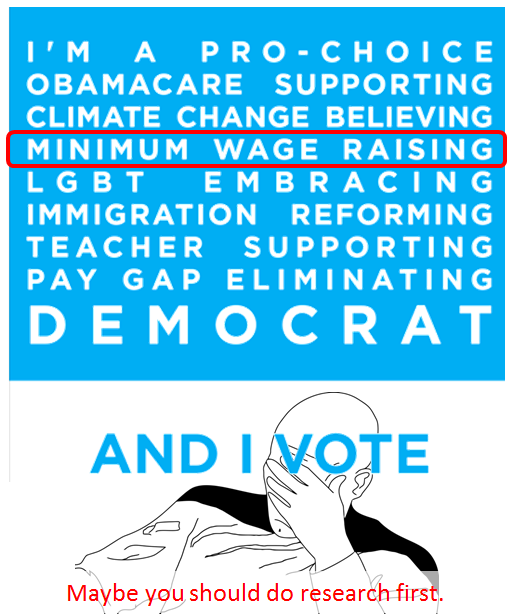 Here’s an article from The Atlantic debunking the myth that math is somehow about genetics. It’s not. It’s about practice. I agree with this, as far as it goes, but it doesn’t go far enough. The message of this post is part of a larger movement contrasting static vs. fixed mindsets. Static mindsets hold that our abilities are innate. Children with static mindsets are afraid of hard tasks because failure will reveal weaknesses about who the are. This leads to a lack of hard practice, and a negative feedback spiral goes downhill from there. Growth mindsets hold that our abilities can be changed with hard work. It greatly reduces the negativity associated with failure (which no longer reflects on your identity) and this–combined with a message that hard work can help you improve–lead to a positive feedback loop.
Here’s an article from The Atlantic debunking the myth that math is somehow about genetics. It’s not. It’s about practice. I agree with this, as far as it goes, but it doesn’t go far enough. The message of this post is part of a larger movement contrasting static vs. fixed mindsets. Static mindsets hold that our abilities are innate. Children with static mindsets are afraid of hard tasks because failure will reveal weaknesses about who the are. This leads to a lack of hard practice, and a negative feedback spiral goes downhill from there. Growth mindsets hold that our abilities can be changed with hard work. It greatly reduces the negativity associated with failure (which no longer reflects on your identity) and this–combined with a message that hard work can help you improve–lead to a positive feedback loop.
I don’t disagree with this at all. I’m just not really sure that these messages go far enough.
Let me start with two examples.
In high school, I joined the track team for one season. One of my closest friends was also on the team but, unlike me, he was insanely good. He wasn’t very competitive, so the coach never put him in individual events. But he was very loyal, so the coach often put him in relays because then he would go all-out for the sake of his team. Our team was good, and we often competed at the state championships.[ref]Not me personally. Not even close.[/ref] I remember that when the coach told the team to take a day of rest from training, he would often assign one or more of the runners to check up on my friend during the day to try and prevent him from running, because if you didn’t watch him constantly, he would run anyway. He was always in his running clothes, he ran multiple times per day, and he would routinely chalk up more than 100 miles per week.
I majored in math as an undergrad. In one of the most difficult courses in the program (abstract algebra II), the professor would call people up to work homework problems on the board. I was part of a group that spent hours working on the problems ahead of time. They were hard, and even working as a group we would often decide that a couple of them were just too much to figure out. We’d do the ones we could, and just hope we weren’t called for one of the tricky ones. But there was one kid–a perfectly humble, warm, nice guy–who didn’t do his homework with a group and often didn’t seem to do his homework at all. If he got called then–almost no mater what problem it was–he’d crack open the textbook, read the problem, stare off into space for a minute, and then get this absurdly pleased grin on his face when he figured it out. It was a totally innocent grin, a lot like my children get when they’ve figured something out, so there was nothing arrogant or showy about it. Then he’d go up and work out the problem on the board.
These guys were geniuses at two very different things, math and running. And they shaped my perceptions of effort, enjoyment, and talent.
The insight came for me when I got temporarily obsessed up with some puzzle or other that was a tangent to a mathematical concept from one of my classes. The concept wasn’t directly related to the course, wouldn’t help me in any way I could see, and I was sure that it was something any serious mathematician would be able to dispatch easily. And yet it held me captivated. I found myself thinking about it between classes, when I was eating, when I lay down to go to sleep. I didn’t just want to know the answer, I wanted to find the answer myself. Eventually it hit me: is this what the kid from abstract algebra thinks about all the time? It was totally out of character for me to think about math for fun when I didn’t have to, but if that grin of his was any indication, this was the kind of thing he did all the time just for fun. Just like my running friend in high school simply loved to be out on a run, period. It’s what he wanted to be doing.
So here’s the thing: the growth mindset philosophy is–as far as I can tell–about encouraging kids to buckle down and do their assigned work. Put in the effort, don’t be afraid to fail, and if you do you’ll get competent at things people think are hard. But this is (1) focused on visible effort (e.g. doing a homework assignment) and (2) results in competency rather than genius. My theory takes this a little bit farther. I think that genius (not just competency) is what results when people spend not just big chunks of time on visible effort, but vast swathes of their free time in invisible effort.[ref]By “invisible effort,” I just mean that you wouldn’t know just by watching these folks that they were thinking about math all the time. For my running friend you would obviously know if you followed him around, but the reality is that he did a lot of his running on his own time and didn’t talk about it. If you didn’t know him well, you wouldn’t know how intense his passion was.[/ref] My guesss–and it’s been born out by observations since then with other standouts that I’ve met–is that for most practical purposes the concept of talent just refers to people who genuinely like an activity so much that they do it incessantly. Coach had to almost literally force my friend in high school to stop running, because running is what he loved. And the mathematical geniuses I’ve met spend a lot of time just thinking about math because they like it.
The idea of enjoyment is crucial because I don’t think that it’s really possible for people to use self-control to dedicate such huge amounts of time to invisible effort. There’s just no practical way to remind yourself to think about math (or whatever) every time you’re waiting for a meeting to start, or on every drive to run an errand, etc. For me, the connection is so strong that I think in the long run aptitude really boils down to just preferences: we’re good at what we like doing.
There are limits and exceptions, of course. I am not saying that genetics pays no role, and obviously environment can be crucial. Some people also spend so much time doing something that they get very, very good at it and then lose all enjoyment of it. So it’s possible to be good at something you don’t like, but I think that’s the exception.
The plus side of that observation, however, is that preferences can change. This leads me to believe that if you want to be very, very good at something you first have to acquire the taste for doing that thing. I think one real downside of the way we do education now is that we don’t spend enough time exposing kids to the wide, wide variety of different kinds of work. And we don’t spend enough time telling kids that for almost any kind of work you can think of, there are people who really like doing it. Take accounting, for example. I never knew a single thing about accounting until I happened to cover some aspects of it that were relevant to a graduate course in international taxation. And lo and behold, it was actually fascinating to me from a philosophical standpoint. That sounds crazy to me as I type it because accountancy has such a bad rep, but it’s the truth. How do you value intangible capital, like a brand name? How do you make sure that you’re setting a good price when subsidiaries of the same parent company “sell” to each other? There are so many fields and disciplines I’ve only learned about in my late 20’s and 30’s that could have been fascinating to me when I was much younger. I want to do a better job of making sure my own kids get a chance to hear all kinds of people talk about all kinds of different work that they are passionate about, just to see what strikes their fancy.
There’s a big caveat, of course, which is that a lot of the time people are in love with the trappings of work rather than the work itself. Take writing, for example. Everyone and their dog has a novel they are working on. But amateur writers are famous for talking about their writing as opposed to, you know, actually writing. Lots of aspiring writers like the image of being a writer, or like the lifestyle that they think comes comes with writing, or just view writing as kind of a default exemption from real-life, boring jobs. Writing is, in a sense, the form of art any old idiot can do. Try to put paintbrush to canvas or chisel to wood and you’ll be able to tell in an instant the difference between someone with skill and someone who has no idea what they’re doing. But since we all learn to write English with basic competency in grade school, writing is the art form everyone is qualified to dabble in. [ref]Hence the name of John Scalzi’s enjoyable book on writing: You’re Not Fooling Anyone When You Take Your Laptop to a Coffee Shop .[/ref] This is one reason I’ve started tracking my time spent writing in Toggl: I want to get an accurate picture of how much effort I’m really putting in. I want to know if I’m just another self-deluded wannabe, and I figure one aspect of that is getting an objective assessment of how much time I spend doing the actual writing.[ref]I’ve only tracked for one entire week so far, and the total was 12 hours and 59 minutes. I’m up to 5 hours and 29 minutes so far this week.)[/ref]
.[/ref] This is one reason I’ve started tracking my time spent writing in Toggl: I want to get an accurate picture of how much effort I’m really putting in. I want to know if I’m just another self-deluded wannabe, and I figure one aspect of that is getting an objective assessment of how much time I spend doing the actual writing.[ref]I’ve only tracked for one entire week so far, and the total was 12 hours and 59 minutes. I’m up to 5 hours and 29 minutes so far this week.)[/ref]
So you have to learn to like the actual activity that you want to excel at, not just the things that surround that activity. But I think that that is really more doable than people might suspect. Want to eat healthy? You have to invest the time to find aspects of healthy eating that you actually enjoy. One trick, of course, is to be starving right before you eat whatever you want to acquire a taste for. Do that a few times, and you’ll be surprised how much you can learn to crave a salad. Want to exercise? Take the time to try out lots of different styles and approaches to find one that appeals. If that’s not enough: get philosophical about how you approach it. I’m slowly becoming a distance runner (as an adult, I never got good at it in high school), and a large part of the reason is because I learned to approach distance running as a kind of meditation. Some of my most sincere prayers and spiritual experiences have been while I’m running. For me, running acts a lot like fasting: the physical discomfort of running (like that of hunger and thirst) can be a focal point for concentration and a steady reminder of my weakness and dependence on God. Trying to push myself to go up one more hill or put in one more mile is practice for all the other hard things I try to make myself do.
Here’s the thing: will-power is great, but research indicates it’s a finite resource. So if you want to accomplish lots of goals, you’re going to want to be as efficient as possible. There’s a certain macho appeal of just running face first into difficult things and overcoming them, but the irony is that the same principle applies. If you like that sensation of challenging yourself then you’re actually not contradicting my strategy. You’re following it. If you don’t enjoy doing things the hard way just for the thrill of it, then you’re going to need to get sneaky and use every dirty trick in the book to fool yourself into doing what it is that you want to get yourself to do.[ref]That’s what the original tagline for Difficult Run was about. It was “Doing the right thing for the wrong reasons for the right reason.” It was a reference to tricking yourself into better behavior, even if you had to leverage lower motivations–like pride or fear–to get the job done.. But no one else liked it.[/ref]
I love the growth mindset. I’m all about it. I sincerely hope to continue to throw myself at new skills as I get older, and to never stop learning and challenging myself and improving. If it takes about 10 years to get really good at something, then I figure that’s at least 3 or 4 things I can get really good at in the time I’ve got left.[ref]On my list: learning to play the mandolin and joining a blue grass band and learning to be a competent cartoonist. But writing is my priority for now.[/ref] I think that maybe if more people believed that 90% of what looks like talent or genius was really about doing what you’ve learned to intrinsically love and therefore do again and again and again, then more people might be encouraged to think seriously about what it is they love and then invest even more passion and enthusiasm into it.
That’s my plan, anyway. I don’t see it as a way of making life easier or taking shortcuts. I just see it as a way of trying to maximize the good that you can do with the finite resources–time, energy, and will-power–that you’ve got.










